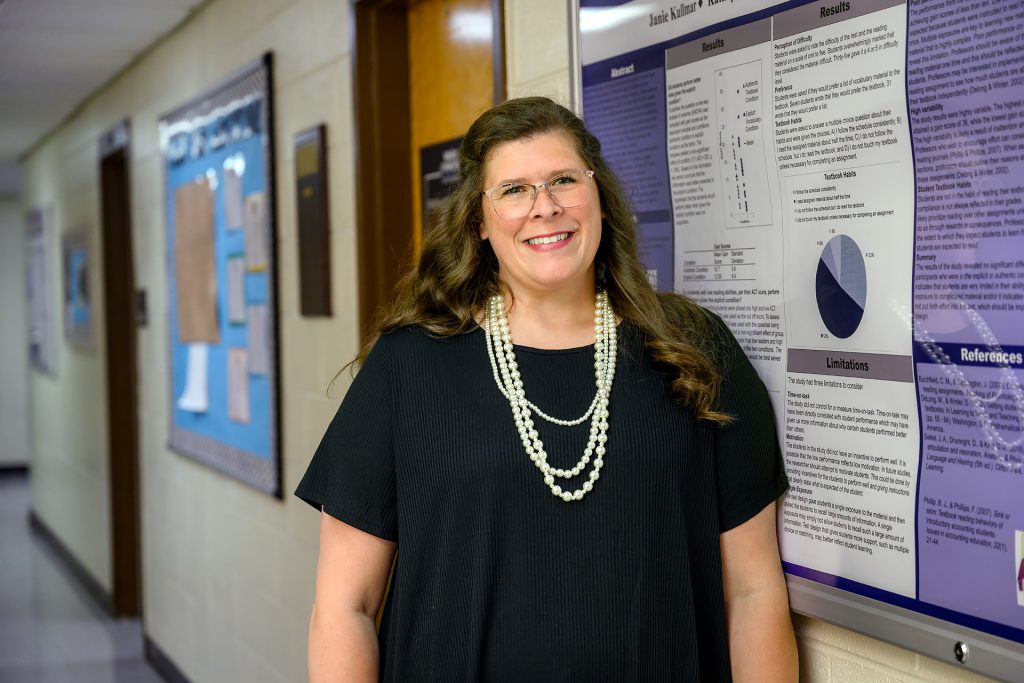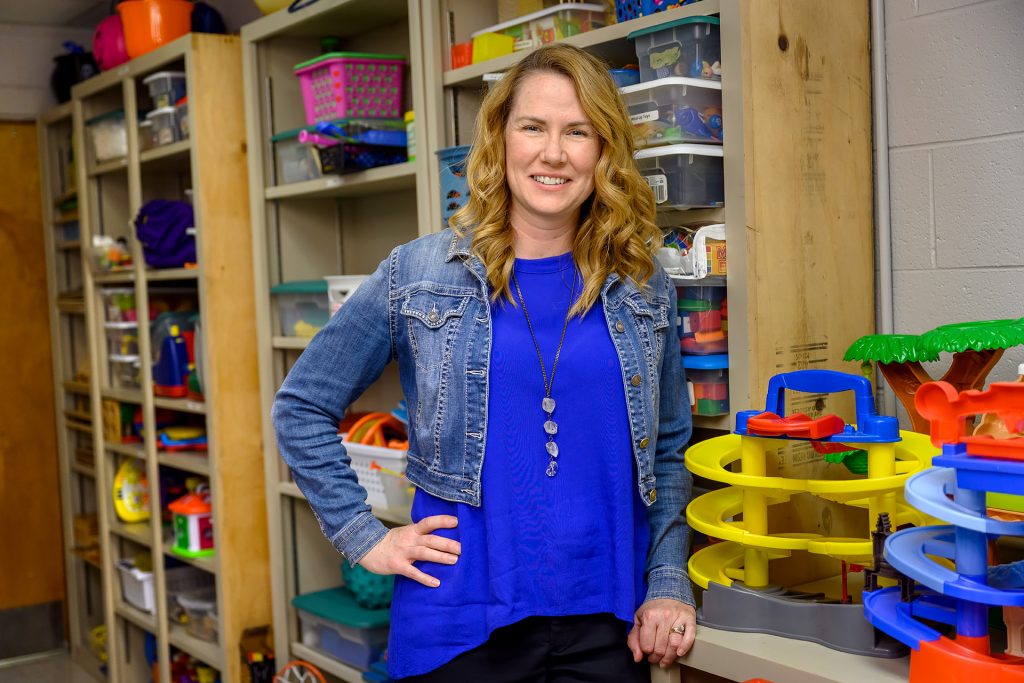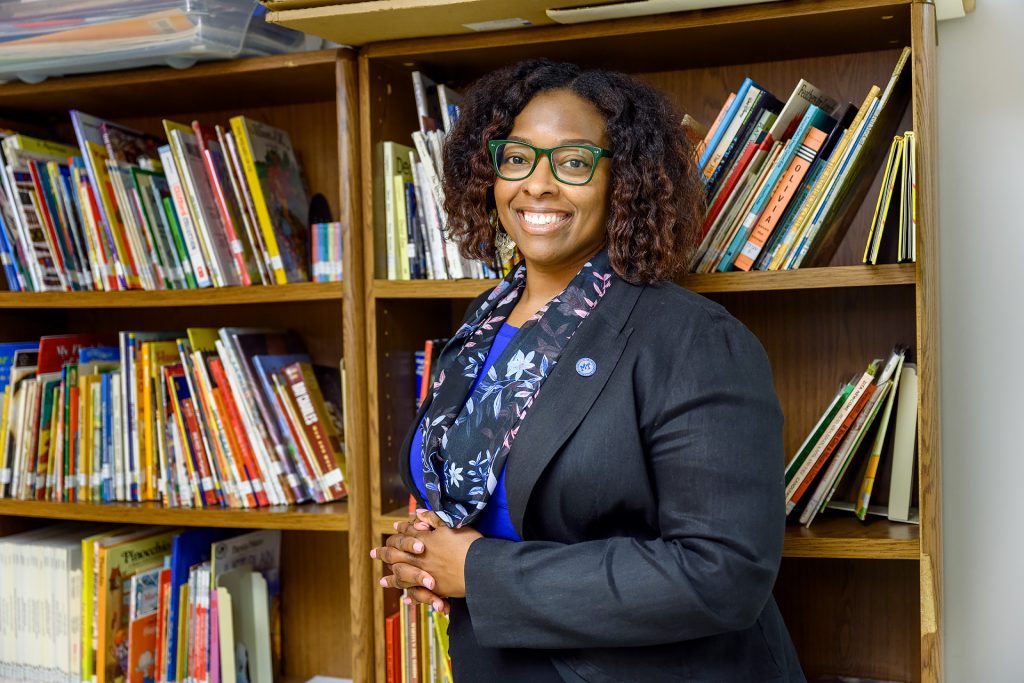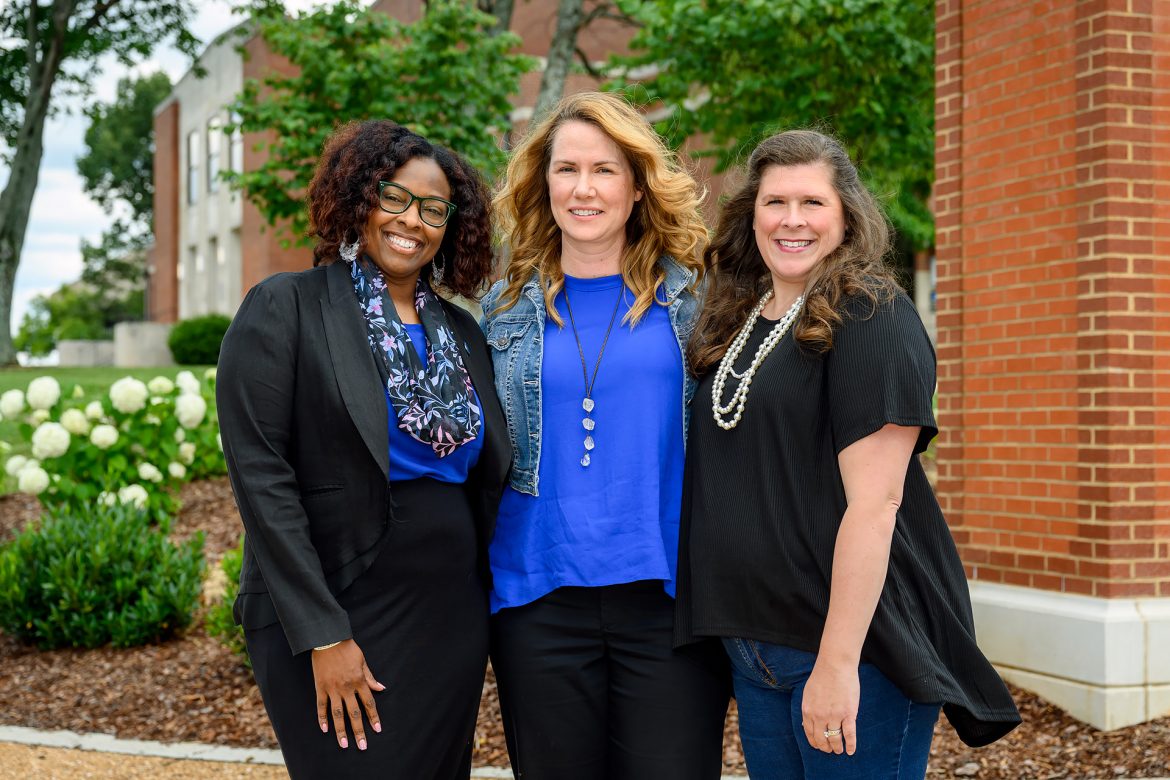By Patsy B. Weiler
Few people on the MTSU campus understood how vital communication was during the pandemic crisis more than Kathryn Blankenship, Karen Davis and Elizabeth Smith.
These talented women are part of the Speech-Language Pathology and Audiology program in the Department of Health and Human Performance.
Students in this area are preparing for a career to help people with daily communication challenges from stuttering to hearing loss and more. And, in addition to academic study, MTSU is the only undergraduate offering in Tennessee that provides 75 to 100 hours of clinical practicum, well preparing them for graduate school and future careers.

Service to students portrait of Kathryn Guillot Blankenship.
Without hesitation, all three agreed “teamwork” and “communication” were the keys to their success with teaching classes, encouraging students and providing clinical services to the public during a time of many uncertainties.
Like most on campus, they had to ride the shockwave of change when the campus moved to various remote learning formats in early 2020.
“As a faculty, we came together in spring 2020 to provide the best quality of instruction as possible. We attended workshops on D2L (a distance learning software), Zoom and collaborated with each other to get our classes up and running. The technology was vital,” said Blankenship, an associate professor who has been at MTSU seven years, mentors senior thesis research and conducts clinical supervision.
Platforms such as Panopto and Microsoft Groups were also utilized by the staff. They recorded lectures and uploaded them to YouTube — collectively requiring hours of work to implement the new changes.
One of the experiences they remember the most was not being able to say goodbye to the spring and summer 2020 graduates in a way they would have preferred.

Service to students portrait of Elizabeth Lanphier Smith.
When the spring 2021 semester rolled onto the calendar, much of the classroom instruction was taught as hybrid classes, allowing for some in-person interaction — a decision the women felt the students responded to in a positive manner.
Due to COVID-19, the MTSU Speech-Language-Hearing Clinic, which treats children and adults with communication disorders, closed in March of 2020. The clinic went silent.
We went from seeing our clients almost every day of the week to not seeing them again for six months,” said Smith, the clinic’s director and a 1996 graduate of the program. “Student clinicians and clinical supervisors quickly put together extensive home plans for all of our clients and their families that included specific instructions as well as the needed materials.”
Because students in the Speech-Language Pathology and Audiology area are required to complete clinical practicum in order to graduate, a way had to be found for this requirement to be met without them having access to the clinic.
The solution was discovered with Simucase, a clinical simulations program allowing students to assess, diagnose, make recommendations and provide intervention for virtual patients.

Service to students portrait of Karen C. Davis.
During the fall 2020 semester, the clinic reopened with stringent protective protocols in place for advanced student clinicians while beginners continued to utilize Simucase.
With the support and guidance of Sonya Sanderson, chair of the Health and Human Performance Department, the clinic developed procedures for a soft opening.
“Families were contacted to inquire about their willingness to return with implementation of COVID-19 precautions,” said Davis, an associate professor who has been at MTSU for two years but brings seven years of academic experience and more than 15 years of being a practicing speech-language pathologist to her job. “The entire Speech-Language Pathology and Audiology program faculty and staff were educated on safety procedures as well as the student clinicians and clients, all who followed the list of guidelines closely.”
For those who chose not to come to campus in person, virtual appointments were available.
In addition to the regular COVID-19 safety measures, appointments were arranged with staggered arrival times and accompanying adults waited outside or in their vehicles. And, because it is imperative to be able to see the mouth during many of the appointments, clear face masks were often utilized.
“The public was very appreciative. We have a strong relationship with the community (which pay for services on a sliding scale.) They constantly verbalized their appreciation for opening (of the clinic) and providing services to their loved one,” added Davis.
Collectively the MTSU team felt they learned the value of patience and positivity and how creative they could be utilizing technology without compromising the compassionate and cutting-edge services that are the hallmarks of the clinic. Today many clinic services are offered online. They now have a blueprint on how to communicate and safely function during any future crisis.
“We learned that our students are amazing! They didn’t miss a beat and quickly adjusted to a new normal,” said Smith. “We are small group, but we are mighty!”
-Patsy Weiler (Patsy.Weiler@mtsu.edu)


COMMENTS ARE OFF THIS POST